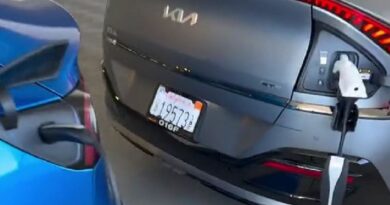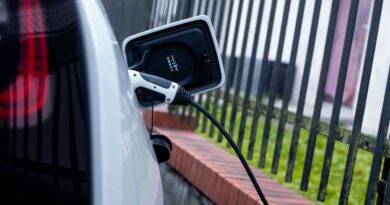UK 2035 petrol and diesel ban: what is it and what cars are affected?
The ban on new petrol and diesel car and van sales in the UK has been delayed to 2035 – here’s everything you need to know
All new petrol and diesel-powered cars and vans are set to be banned from sale in the UK in 2035, following a government move to postpone the measure that was originally scheduled to come into effect in 2030.
The change of policy announced by Rishi Sunak brings the UK into line with the EU and many other global markets, and means that from 2035 the only new cars and vans that can be sold will be pure electric ones, plus any hydrogen-powered cars, that may exist at that point.
-
Best electric cars to buy 2023
Second-hand cars will be unaffected by the ICE (internal combustion engine) ban, and may be bought and sold freely just as now. That means that very many older petrol and diesel cars, plus conventional hybrids and plug-in models, are likely to be in use long after the 2035 deadline for selling new ones.
Although the UK has yet to publish details of how the 2035 ban will work, it’s unlikely to differ much from the EU’s plan to ban the sale of petrol and diesel cars from 2035. That means we’re likely to see exemptions in place for low-volume or specialist manufacturers. However, while the EU intends to provide further exemptions for internal combustion engined cars powered exclusively by efuels, the UK government has so far made no plans to offer efuel exemptions here.
A further consideration for consumers and industry, is that all the major opposition parties to the Conservative government have pledged to reverse Rishi Sunak’s September 2023 change of policy, and revert to the original 2030 date for banning new petrol and diesel car sales. With a general election looming in 2024, and polls putting the Labour party ahead, it seems there’s plenty of scope for more change – and more uncertainty – in the months ahead.
Limited Government help for the electric car transition
To help facilitate the transition away from fossil-fuel cars in the UK, £1.3 billion of investment was announced in 2020 to fund EV chargepoints for homes, streets and motorways across England. A further £582 million was set aside for grants to help people and businesses into EVs and PHEVs. The Government is also investing in battery development and mass production, while more money was earmarked for nuclear power plants, partly to help meet the demand for electricity the growing number of EVs will bring.
However, even though car makers will be mandated by law to sell increasing numbers of EVs – starting at 22 per cent of their total sales in 2024 and rising to 80 per cent by 2030 – or face financial penalties, the government has so far resisted industry calls to incentivise EV buyers with taxpayers’ cash.
-
Top 10 best plug-in hybrids to buy
Since the government withdrew the UK plug-in car grant in 2022, there have been no financial incentives offered to private buyers of EVs. Meanwhile, company car buyers are offered major benefit-in-kind benefits if they choose an EV over a petrol or diesel alternative, a state of affairs which has led to booming EV registrations by fleet users, while demand for EVs among private buyers has fallen back.
Background to the petrol and diesel ban: how we arrived at 2035
A ban on the sale of new petrol and diesel cars was first announced by then-environment secretary, Michael Gove, in 2017. Back then, the date was set for 2040 and, after several clarifications, it emerged any new car with any kind of internal combustion engine would be banned from sale by that date.
I don’t have off-street parking. How will I charge an electric car?
A number of solutions exist or are in development for this. Chargers that pop out from the kerb and lamp post chargers are two such options. Furthermore, as the number of electric vehicles in the country increases, so to will charging stations. Expect these to become more commonplace at supermarkets, pubs and restaurants, cinemas, leisure centres, and other locations over the next decade.
-
Electric car charging at home with no driveway: options, rules and tips
A change of mindset will also be required, with EV users highlighting the approach people take to charging their smartphones as being similar to topping up EVs: rather than always doing big overnight charges, for example, regular top-ups will keep people’s cars moving.
I cover above average mileages. Will my journeys take longer?
The average UK motorist drives around 21 miles a day, but many people do more. EV ranges are commonly increasing, however, with 200-300 miles from a single charge a realistic figure for many modern electric cars. Journeys of such length would typically bring with them pit-stops at motorway services, where fast charging can add a meaningful amount of range in as little as 30 minutes, and a £1.3 billion fund helping make such chargers more plentiful.
I’m a van driver. How will the ban affect me?
Vans, also known as light commercial vehicles, are also affected by the 2035 ban. Just as EV technology has developed rapidly for cars, so has it for vans. The new Ford E-Transit, for example, has a range of 217 miles, the same cargo capacity as its diesel counterpart. Expect more such vehicles over the next decade and, while electric vans are likely to be more expensive to buy than diesel models, running costs can be lower thanks to the lack of engines to service, and diesel tanks to fill up.
-
Best electric vans 2023
What about National Grid? Can the UK’s electricity supply cope with all these extra EVs?
Indications are that this will not be a problem. There are around 30 million petrol and diesel cars in the UK, but these will not be replaced overnight, and the phase-in of EVs will be gradual. Assuming new-car sales figures continue at their current pace of roughly two million a year, it’ll be 15 years before the UK’s petrol and diesel cars are replaced.
National Grid has previously stated that “enough capacity exists” for the transition to EVs, while its modelling predicts that even if all the UK’s cars became electric overnight, demand would only increase by 10 per cent.
What kind of car should you buy today? We examine the petrol, diesel, electric and hybrid options here…
Source: Read Full Article
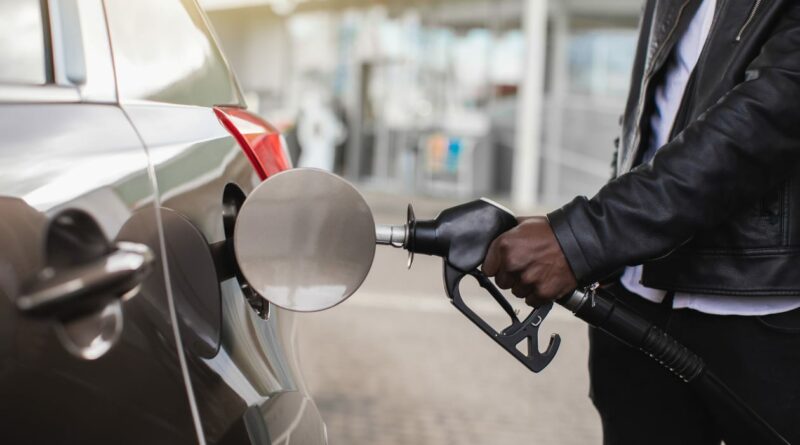

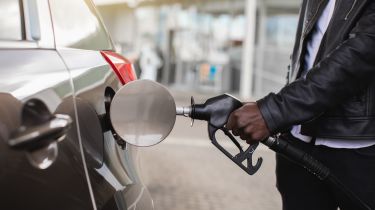
 Best electric cars to buy 2023
Best electric cars to buy 2023 Top 10 best plug-in hybrids to buy
Top 10 best plug-in hybrids to buy
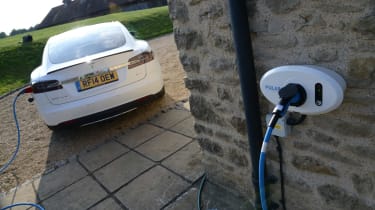
 Electric car charging at home with no driveway: options, rules and tips
Electric car charging at home with no driveway: options, rules and tips Best electric vans 2023
Best electric vans 2023